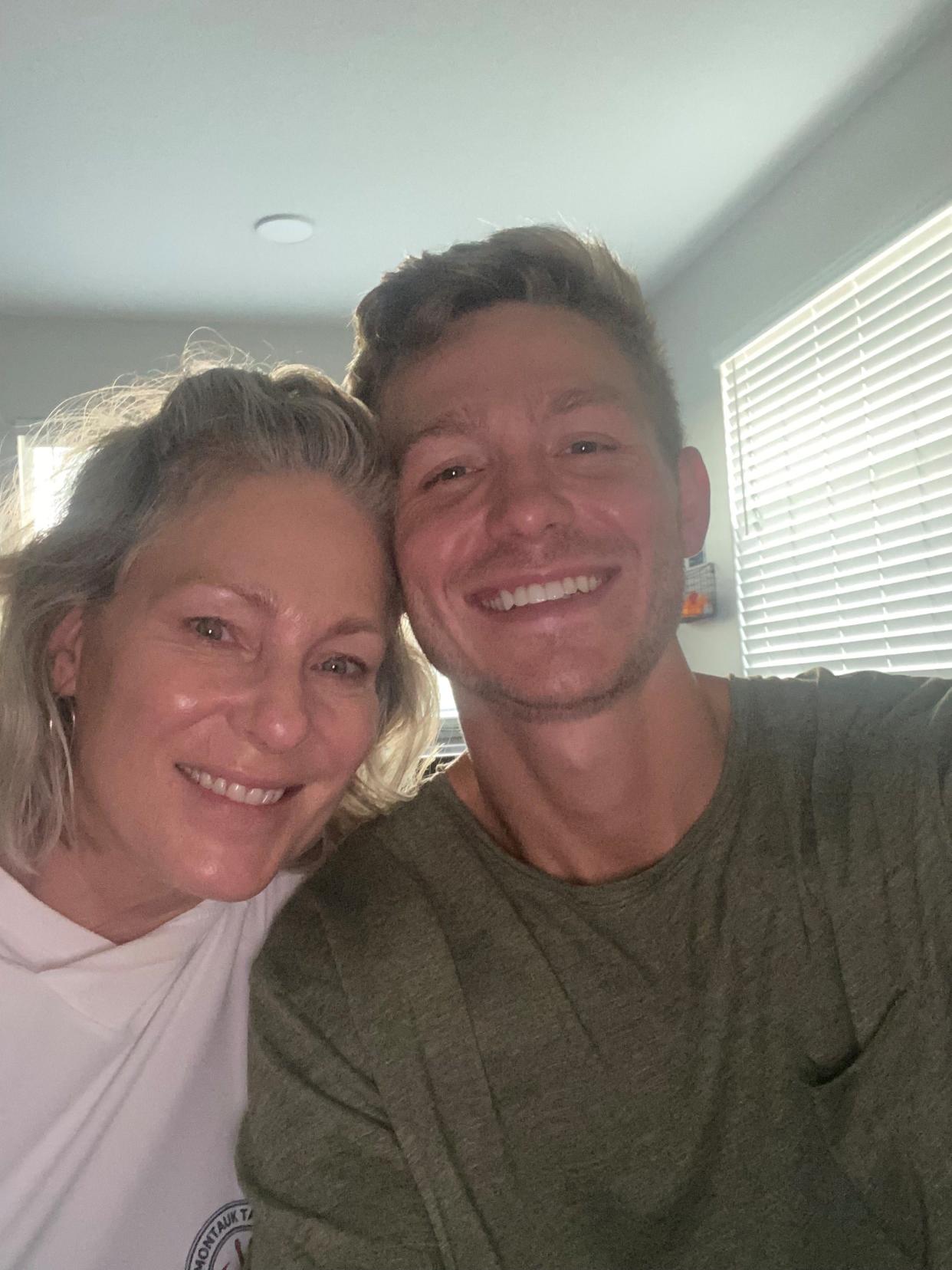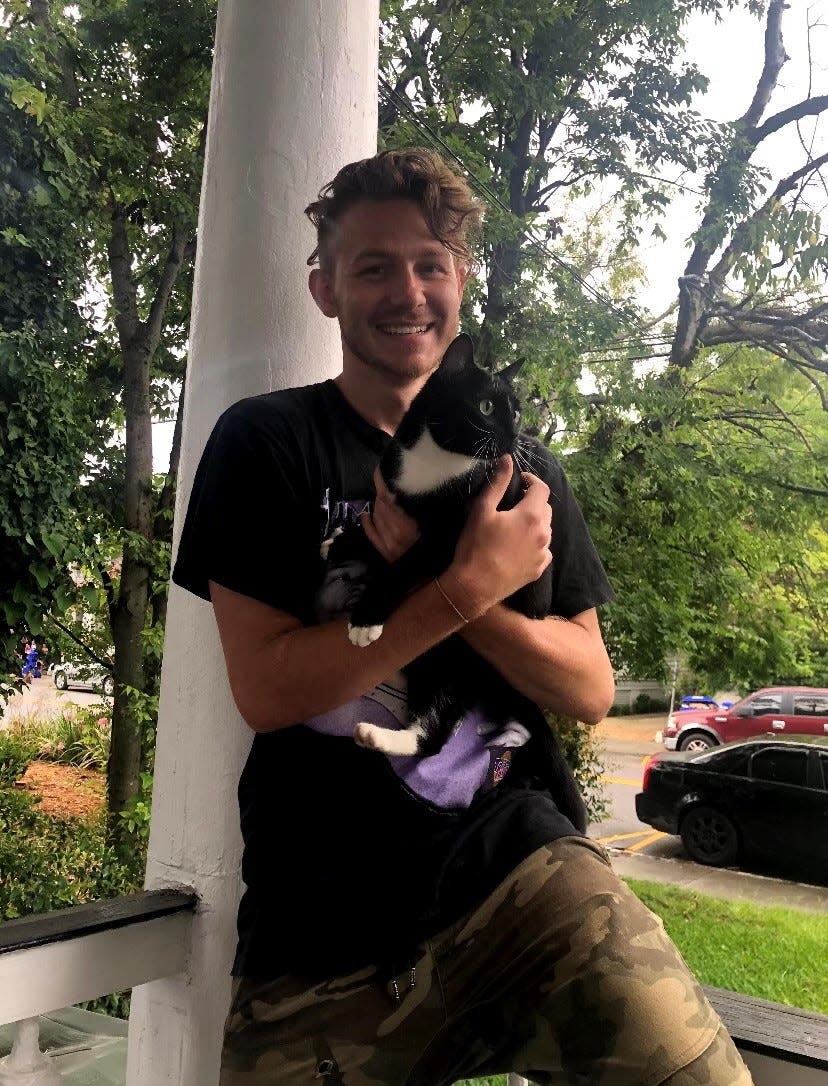Out-of-state visitors to Florida have highest risk of overdose deaths, study finds
As drug overdose deaths in Palm Beach County climbed steeply in 2017, then-Lake Worth Beach City Commissioner and local business owner Andy Amoroso spoke to a Boston reporter about the rising toll among young people who came to Florida for addiction treatment.
“My message would be, 'Stop sending your children and your loved ones to South Florida,' ” he said, “'because we’re sending them back in body bags.'”
Now a study by Pennsylvania State University researchers has added numbers to that warning, showing the chances of dying of a drug overdose are 63% higher for out-of-state visitors in Florida than they are for visitors to any other state.
Researchers based their findings on information recorded on death certificates, which show both the county where a death has taken place as well as the county of residence. They searched deaths caused by drug overdoses nationwide from 2003 to 2020.

Read The Post's investigation: Florida Shuffle: State's failure to oversee addiction treatment leaves patients in deadly danger
Lax regulation in Florida appears to contribute to the state's disproportionately high drug overdose rates, the authors wrote, bringing people into dangerous settings where deadly drugs are easier to get than effective treatment.
Researchers cite deadly failure to monitor pain clinics
During the first nine years examined in the study, said Ilan Shrira, a social psychologist who led the study, so-called “pain clinics” operated with no oversight in Florida as they dispensed prescription drugs indiscriminately, bringing people seeking opioid drugs from outside the state.
“Although the majority of out-of-state residents who traveled to purchase drugs at Florida’s pain clinics no doubt survived their trips and returned home,” the authors wrote, “their likelihood of overdose would have increased as soon as they acquired these drugs, leading some to overdose before leaving the state.”
More: Florida's overall overdose deaths drop, but some lethal drugs are on the rise
The numbers of out-of-state pill mill customers who died because of drugs purchased in Florida have likely been underestimated, the authors said, because the data they saw represents only those who died while still here. Law-enforcement records, however, indicate that Americans living in other states comprised “much if not most” of the recipients of those drugs, according to the authors.
Following the implementation in 2011 of the state’s Prescription Drug Monitoring Program, which tracked prescriptions of opioids, drug overdose rates among residents and visitors in Florida dropped sharply.
“It is mind-boggling,” said Shrira. “All these people dying, and it took so long to tighten the reins.”

Under DCF oversight, Florida is a haven for corrupt treatment operators
Within the next two years, Florida regulators failed to meet another challenge, however, as the Affordable Care Act expanded insurance coverage for addiction treatment for young people. While opening access to life-saving care, the change also opened opportunities for corrupt operators in Florida, one of the few states to assign licensing of addiction treatment to an agency with no medical expertise, its Department of Children and Families.
Out-of-state patients were particularly profitable for these operators because their out-of-network insurance paid much more generously for expensive, often unnecessary, and sometimes nonexistent tests and supposed therapies, the authors noted.
With a limit for how long a patient could stay in treatment but no limit on how many times a patient could return to treatment after relapsing, exploitive operators had motives to facilitate, and even encourage, a cycle of recovery and return to drug use.
More: What is the Florida Shuffle of addiction treatment? How patients are lured here
Under DCF oversight that the authors call “insufficient,” these practices flourished, they said, noting that “this process of cycling through treatment programs and recovery centers has been termed the Florida Shuffle.”
To support their theory that coming to Florida for addiction treatment increased the risks of dying from drug overdose, researchers zeroed in on Palm Beach County, home to a higher concentration of drug treatment programs than other counties.
“If fraud and exploitation in Florida’s treatment industry have contributed to excessive overdose fatalities among visitors to Florida,” the authors wrote, “then we should expect these fatalities to be particularly high in Palm Beach County."
They found more than twice the rate of overdose deaths among out-of-state visitors to Palm Beach County than that of deaths among visitors to all other Florida counties.
The data “supports the possibility that exposure to the Florida drug treatment industry was connected to excessive overdose mortality during this period,” they wrote.
In a September 2023 investigation, The Palm Beach Post followed the path of Joseph Havrilla, a young man who came to Florida for substance use disorder treatment. After repeatedly relapsing and returning to treatment, Havrilla died of a drug overdose in Riviera Beach in September 2022, his body going undiscovered for four months after his death.

DCF records of at least two of the facilities where he sought treatment were incomplete, with confirmed complaints of violations going unaddressed.
The agency had no information on the numbers of complaints involving the facilities it licensed for the year that Havrilla came to Florida and died.
DCF could produce no record of ever having revoked an addiction program treatment license or leveling a fine in response to violations.
The toll of negligent regulatory oversight in Florida is not confined to the state, the authors emphasized.
“Our findings suggest the need for stronger regulatory interventions that can address the interstate scope of the problem both inside and outside of Florida.”
Antigone Barton is a reporter with The Palm Beach Post. You can reach her at avbarton@pbpost.com. Help support our work: Subscribe today.
This article originally appeared on Palm Beach Post: Overdose deaths higher among Florida out-of-state visitors
